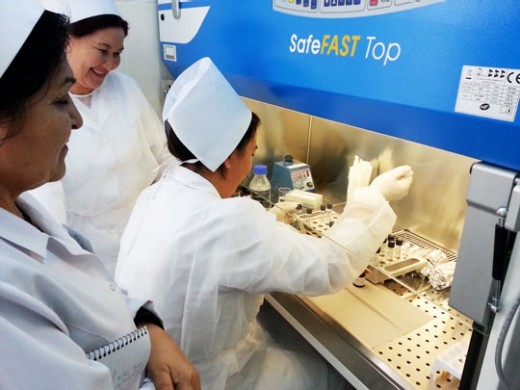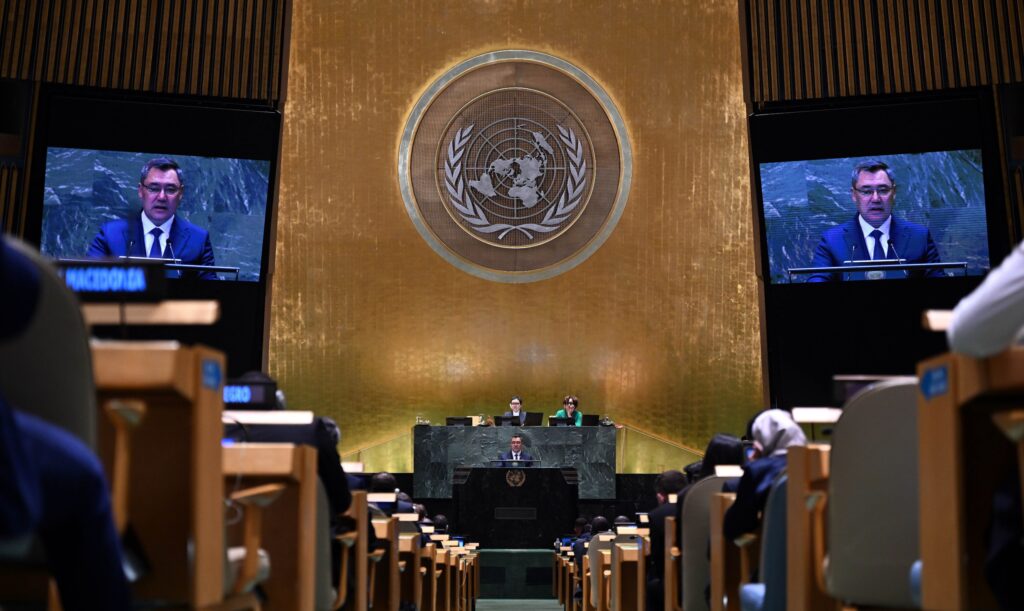ASHGABAT (TCA) — The United Nations Development Programme (UNDP) and the Global Fund have signed a new grant in Turkmenistan to control tuberculosis (TB) by ensuring timely and universal access to quality diagnosis and treatment of drug-resistant forms of TB, the UNDP Turkmenistan said on June 22.
Multi-drug resistant tuberculosis (MDR-TB) cannot be cured by basic antibiotics used to treat TB. MDR-TB treatment can take up to 2 years to complete and requires administration of drugs that can be toxic to the patient, and prohibitively expensive for the government. The World Health Organisation (WHO) estimates that there were 450 MDR-TB cases in Turkmenistan in 2014.
The US$5.3 million grant, which will be managed by UNDP, will begin in July 2016. Over the next two years, activities funded by the grant will focus on the early diagnosis of all forms of TB, patient-centered care, and monitoring and evaluation to improve the overall performance of the health system in Turkmenistan. The funds will also go towards the procurement of second line TB medicines as well equipment and supplies for drug-resistant TB diagnosis.
“UNDP has supported the Ministry of Health and Medical Industry of Turkmenistan since 2010 in provision of TB services. Our priority is also to develop national capacities for sustainable handover of the Global Fund grants to the national partners in Turkmenistan. The grant serves as a unique example of cooperation between national institutions, international organizations, and public associations of Turkmenistan. Under the new grant, we look forward to achieving the objective of tackling drug-resistant tuberculosis though innovative patient-centered models of care,” said Vitalie Vremis, UNDP Deputy Resident Representative in Turkmenistan.
While TB cases in Turkmenistan have decreased over the last decade, MDR-TB remains a challenge especially as there is no routine drug-resistant TB surveillance in the country. The first drug resistance survey was conducted in 2013 and highlighted a 14 per cent MDR-TB prevalence among new TB cases and 38 per cent prevalence among retreatment cases. With support from a previous Global Fund grant, in 2013 the National TB Programme started treatment of MDR-TB. Nearly 3000 doctors, nurses, lab specialists, and primary health care workers and relevant staff in prisons received training in diagnosis and treatment of TB.
The new grant will include technical assistance and support for external quality assurance and training to strengthen laboratory capabilities, updating national guidelines for TB treatment, introducing a national TB electronic database and improving case management for outpatients and those in prisons. The new grant will offer support to patients to ensure they stay with their course of treatment.
With the support of WHO, the country has developed the National TB Strategic Plan for 2016-2020. The main goal of the Plan is to decrease the burden of TB in Turkmenistan by ensuring universal access to timely and quality diagnosis and treatment of all forms of TB. It aims to decrease the targets for TB mortality and incidence rates to 2.4 and 56 per 100,000 respectively, by 2020; and to achieve 90% case detection and 75% treatment success rate for MDR-TB by 2020.









